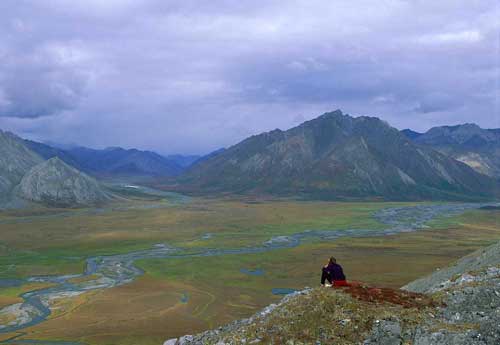Washington — Thursday the Natural Resources Committee of the U.S House of Representatives completed mark-up of budget reconciliation language that includes repeal of the Arctic National Wildlife Refuge oil and gas program and the buyback of all existing leases. The program originally passed through reconciliation in 2017 as part of the Tax Cuts and Jobs Act. The language will now be merged into the full reconciliation bill and taken up by the full House.
On January 6, 2021, the Trump administration held the first lease sale for tracts on the 1.5-million-acre coastal plain of the Arctic Refuge, and the result, as our late executive director Adam Kolton said at the time, was “an epic failure.” No major oil companies showed up to bid and only nine tracts out of 22 offered were sold. Seven of the nine leases awarded went to an Alaska state entity that had never bid on oil leases before, and the sale generated a mere $12 million — less than 1% of the projected revenue, with half of that paid out back to Alaska.
Statement by Kristen Miller, Acting Executive Director, Alaska Wilderness League:
“When Congress opened the Arctic Refuge to oil and gas leasing in 2017, the American public was promised billions in federal revenue. Those projections were laughable then and those doubts were vindicated by a January lease sale that failed spectacularly. It’s impossible today for anyone to credibly argue that Arctic Refuge oil is going to result in a jobs and revenue bonanza. Today’s markup advances bill language that imposes some much-needed fiscal common sense and long overdue action to reverse the fire sale of the crown jewel of our National Wildlife Refuge System.
“Congress and the Biden administration might not get a better opportunity to work together to restore protections for the Arctic Refuge. Repealing the Arctic Refuge oil and gas program is the most important action Congress can take right now to protect threatened Arctic wildlife and ensure the rights, culture and sacred lands of Gwich’in and Iñupiat peoples remain intact, and it is a vital piece of addressing the climate crisis.”
###[content id=”79272″]







